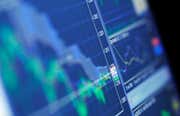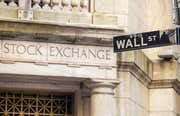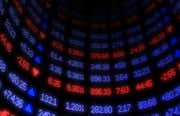By Stephen Simpson
In general, economics is the study of how agents (people, firms, nations) use scarce resources to satisfy unlimited wants. Macroeconomics is the branch of economics that concerns itself with market systems that operate on a large scale. Where microeconomics is more focused on the choices made by individual actors in the economy (individual consumers or firms, for instance), macroeconomics deals with the performance, structure and behavior of the entire economy. When investors talk about macroeconomics, discussions of policy decisions like raising or lowering interest rates or changing tax rates are discussed. (For related reading, see Understanding Microeconomics.)
Some of the key questions addressed by macroeconomics include: What causes unemployment? What causes inflation? What creates or stimulates economic growth? Macroeconomics attempts to measure how well an economy is performing, understand how it works, and how performance can improve.
While the term "macroeconomics" is not all that old (going back to Ragnar Frisch in 1933) many of the core concepts in macroeconomics have been the focus of study for much longer. Topics like unemployment, prices, growth and trade have concerned economists almost from the very beginning of the discipline, though their study has become much more focused and specialized through the 1990s and 2000s.
Likewise, it is difficult to name any sort of founder of macroeconomic studies. John Maynard Keynes is often credited with the first theories of economics that described or modeled the behavior of the economy, elements of earlier work from the likes of Adam Smith and John Stuart Mill clearly addressed issues that would now be recognized as the domain of macroeconomics. (For related reading, see Giants Of Finance: John Maynard Keynes.)
Although microeconomic ideas like game theory are clearly quite significant today and the decision-making process of individual agents like firms is still an important field of study, macroeconomics has arguably become the dominant focus of economics – at least as it applies to the investment process and financial markets.
Macroeconomics: Schools Of Thought
In general, economics is the study of how agents (people, firms, nations) use scarce resources to satisfy unlimited wants. Macroeconomics is the branch of economics that concerns itself with market systems that operate on a large scale. Where microeconomics is more focused on the choices made by individual actors in the economy (individual consumers or firms, for instance), macroeconomics deals with the performance, structure and behavior of the entire economy. When investors talk about macroeconomics, discussions of policy decisions like raising or lowering interest rates or changing tax rates are discussed. (For related reading, see Understanding Microeconomics.)
Some of the key questions addressed by macroeconomics include: What causes unemployment? What causes inflation? What creates or stimulates economic growth? Macroeconomics attempts to measure how well an economy is performing, understand how it works, and how performance can improve.
While the term "macroeconomics" is not all that old (going back to Ragnar Frisch in 1933) many of the core concepts in macroeconomics have been the focus of study for much longer. Topics like unemployment, prices, growth and trade have concerned economists almost from the very beginning of the discipline, though their study has become much more focused and specialized through the 1990s and 2000s.
Likewise, it is difficult to name any sort of founder of macroeconomic studies. John Maynard Keynes is often credited with the first theories of economics that described or modeled the behavior of the economy, elements of earlier work from the likes of Adam Smith and John Stuart Mill clearly addressed issues that would now be recognized as the domain of macroeconomics. (For related reading, see Giants Of Finance: John Maynard Keynes.)
Although microeconomic ideas like game theory are clearly quite significant today and the decision-making process of individual agents like firms is still an important field of study, macroeconomics has arguably become the dominant focus of economics – at least as it applies to the investment process and financial markets.
Macroeconomics: Schools Of Thought
Related Articles
-
 Trading
TradingJohn Maynard Keynes - Giant Of Finance
Keynes' "General Theory" will forever be remembered for giving governments a central role in economics. -
 Insights
InsightsEconomist Guide: 5 Lessons John Maynard Keynes Teaches Us
Read about the paradoxical and confusing world of John Maynard Keynes, including the lessons modern economists can still learn from the British thinker. -
 Insights
InsightsMacroeconomic Forces That Will Control Markets in 2016
Learn why several basic macroeconomic factors will control the direction of stock and bond markets in 2016. -
 Insights
InsightsEconomic Indicators That Affect The U.S. Stock Market
Macroeconomic factors like GDP, Inflation, and Retail Sales affect the value of your portfolio. Understanding these economic indicators is vital for every investor in the marketplace. -
 Insights
InsightsThe History of Economic Thought
Economics is a vital part of every day life. Discover the major players who shaped its development. -
 Insights
InsightsIntroduction to Supply and Demand
Learn about one of the most fundamental concepts of economics - supply and demand - and how it relates to your daily purchases.



